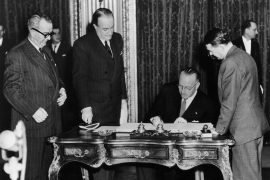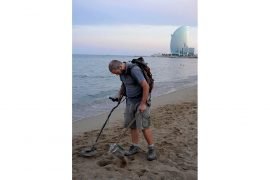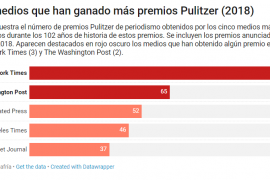One of the clearest trends in the coming years is the aging population. Hippocrates, one of the great sages of ancient Greece, divided the life cycle of man into periods of seven years, a number always associated with magical properties, the most critical point being the transit at the end of the ninth fraction, or the great climateric. At this age of 74 years, according to the classical canon the threshold of old age is crossed: an age thus reserved for but a few. Since then humanity has democratized progress and old age, which makes ars senescendi—the art of aging—ever more important. To approach this universal subject, the great Hellenist Pedro Olalla proposes a profound dialogue, the most appropriate form to discuss ethical and political issues freely—as we learn from Plato and Socrates—with Cicero on the philosophy of the twilight of life, in the delicious opuscule De senectute política, published by Acantilado.
It is an empirical fact that more and more people live longer, but are these years really lived, or on the contrary, has old age become institutionalized as a kind of social parking where life is no longer lived but simply passes? Through the thought of Cicero and other classical philosophers, the author reveals to the reader how old age is not so much an issue related to age but to character: thus, the ambitious enterprise of “aging well” is, essentially, an ethical commitment. Therefore, one thing is senior citizenship, the final climateric, and another very different thing is old age. Being old is determined by the attitude of vitality or hopelessness that we may have for tomorrow. That is why there are young (and old) of all ages.
For the great Cicero, philosophy and politics are prerogatives of the free, prerogatives that require action, will. Aging well, living well, which in short are one and the same, is an undertaking whose success rests on our own will, a force more powerful than that of the biological process itself. We often associate old age with lack of action. However, too often do we forget that the most valuable actions are not carried out with the impetus of the body, but with practical knowledge, criterion and good judgment that can only be achieved with old age. Attitude and activity are important at all stages of life. Good habits (reflecting our will) are our best defence to keep our abilities in good condition over time. An inalienable individual responsibility.
The above invites us to wonder whether we are prepared to face soundly the social challenges that derive from an aging society. A challenge that not only requires financial solvency, having good forward-looking policies, of savings and balanced accounts—all of these unresolved issues—but also emotional solvency and solid values. In this sense, our low reading rates for example, are not a good symptom.
Developing good habits, whether physical or mental, is a lifelong task. Having a strong emotional literacy and a good cultural level will allow us to enjoy life in a vitally intimate way to the end, regardless of the circumstances that may surround us in old age. Intelligence, a smile or affection towards the people that are close to us, are perennial attributes. But this requires perseverance in the cultivation of an emotionally rich, disciplined life. Preparing for good old age tomorrow requires developing good habits today. Another form of savings, if you wish.
A good senescence is the natural corollary of a well-lived life that finds sustenance in continuing to learn, in continuing to have relationships with others, in feeling useful, in not neglecting oneself physically, in cultivating a humble purpose and trusting in an ultimate meaning–in this case, the generosity of caring for family and friends
Aging does not just mean losing. With age we gain experience, criterion, virtue, nobility, prudence, we become fairer, more compassionate, more benevolent, and also, undoubtedly, more intelligent and practical. The followers of Yahweh attribute indiscriminate wisdom to all elders simply because they have aged. An idea that the Spanish proverb also reflects in its own way: “The Devil knows more because he’s old than because he’s the devil.” There are even those who are able to learn while ageing, senescere addiscentem, like the wise Solon. Sophocles, who reached the ripe old age of 92, wrote Oedipus at Colonus, one of his many famous tragedies, at age 90. Olalla discovers how old age is not to be seen as something fatalistic, strictly defined in numerical terms, associated as a basically passive stage of life and the prelude to death. Another example is Cato. An active participative elder, he reached a dignified, exemplary old age.
A good senescence is the natural corollary of a well-lived life that finds sustenance in continuing to learn, in continuing to have relationships with others, in feeling useful, in not neglecting oneself physically, in cultivating a humble purpose and trusting in an ultimate meaning–in this case, the generosity of caring for family and friends.
The only quible with Olalla’s interesting book lies in certain reflections on economics, where concepts are dangerously mixed. As when criticizing the capitalist system, associating it with the current pattern of consumption, fed via cheap credit in a monetary system lacking solid foundations, debased by politicians and bankers—the author does have some intuition about the perversion of money, but which he does not come to specify—that little or nothing has to do with prudence, savings or the accumulation of capital on which capitalism is based. Admonition that may also be made of certain observations on direct democracy, which are at least as utopian—especially in view of the current scenario. All in all though, a wonderful book and magnificent summer reading.



















